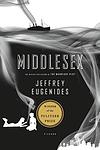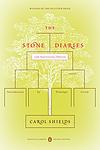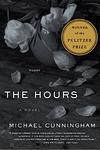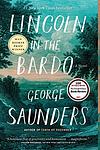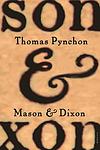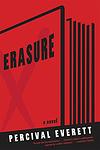The Greatest "Fiction, Postmodern" Books Since 1990
Click to learn how this list is calculated.
This list represents a comprehensive and trusted collection of the greatest books. Developed through a specialized algorithm, it brings together 284 'best of' book lists to form a definitive guide to the world's most acclaimed books. For those interested in how these books are chosen, additional details can be found on the rankings page.
Genres
Postmodernism is a literary movement that emerged in the mid-20th century, characterized by a rejection of traditional narrative structures and a focus on self-reflexivity and intertextuality. Postmodern literature often features fragmented narratives, unreliable narrators, and a blurring of the lines between reality and fiction. It is a genre that challenges the notion of a single, objective truth and instead embraces the idea of multiple perspectives and interpretations. Postmodern literature is often seen as a response to the modernist movement that preceded it, and it continues to be a popular and influential category for contemporary writers.
Countries
Date Range
Reading Statistics
Click the button below to see how many of these books you've read!
Download
If you're interested in downloading this list as a CSV file for use in a spreadsheet application, you can easily do so by clicking the button below. Please note that to ensure a manageable file size and faster download, the CSV will include details for only the first 500 books.
Download-
1. The Amazing Adventures of Kavalier and Clay by Michael Chabon
The book follows the lives of two Jewish cousins, one a skilled escape artist and the other a talented artist, before, during, and after World War II. They create a popular comic book superhero, which brings them fame and fortune. However, their success is complicated by personal struggles, including the escape artist's attempts to rescue his family from Nazi-occupied Prague and the artist's struggle with his sexuality. The narrative explores themes of escapism, identity, and the golden age of comic books.
-
2. The Wind-Up Bird Chronicle by Haruki Murakami
A man's search for his wife's missing cat evolves into a surreal journey through Tokyo's underbelly, where he encounters a bizarre collection of characters with strange stories and peculiar obsessions. As he delves deeper, he finds himself entangled in a web of dreamlike scenarios, historical digressions, and metaphysical investigations. His reality becomes increasingly intertwined with the dream world as he grapples with themes of fate, identity, and the dark side of the human psyche.
-
3. Infinite Jest by David Foster Wallace
This novel is a complex, multi-layered narrative that explores themes of addiction, recovery, and the human condition in a near-future society. The story is set in a tennis academy and a halfway house for recovering addicts, and it intertwines the lives of its numerous characters, including a gifted but troubled teenage tennis prodigy, his filmmaker father, and a group of Quebecois separatists. The book is known for its length, intricate plot, and extensive use of footnotes.
-
4. Underworld by Don DeLillo
"Underworld" is a sweeping narrative that spans from the 1950s to the end of the 20th century, exploring the interconnectedness of events and the impact of the Cold War on American society. The story revolves around a diverse group of characters, including a waste management executive, a graffiti artist, a nun, and a baseball collector, among others. These characters' lives intertwine in unexpected ways, illustrating the complex web of relationships and influences that shape our world. The novel is renowned for its vivid portrayal of historical events and its profound examination of themes such as memory, technology, and waste.
-
5. Middlesex by Jeffrey Eugenides
The book follows the life of Calliope Stephanides, a Greek-American hermaphrodite, who narrates her epic story starting from her grandparents' incestuous relationship in a small village in Asia Minor to her own self-discovery in 20th century America. The novel delves into themes of identity, gender, and the American dream, while also providing a detailed history of Detroit through the eyes of three generations of an immigrant family.
-
6. Austerlitz by W. G. Sebald
The novel follows the story of Jacques Austerlitz, an architectural historian who was brought to England on a Kindertransport from Czechoslovakia during World War II. As an adult, Jacques embarks on a journey to uncover his past, including his original identity, his parent's fate, and his own lost history. The narrative is a haunting exploration of memory, identity, and the lasting impact of the Holocaust.
-
7. The Savage Detectives by Roberto Bolaño
"The Savage Detectives" is a novel that follows the lives of two Latin American poets, Arturo Belano and Ulises Lima, who are founders of a literary movement called "visceral realism." The book is divided into three parts and is narrated by multiple characters, providing different perspectives on the protagonists. The narrative spans over 20 years, following the poets' journey from Mexico City to Europe, Israel, and Africa, as they search for a mysterious poetess and navigate through the world of literature, sex, drugs, and the complexities of life.
-
8. Rabbit at Rest by John Updike
The novel is a final look into the life of Harry "Rabbit" Angstrom, a former high-school basketball star, now in his mid-fifties, overweight and grappling with several health issues. Despite his success in business, his personal life is in shambles, with his wife addicted to alcohol and his son to drugs. Harry, struggling with his mortality, is trying to understand his past and make sense of his future, while dealing with the changing American society and the consequences of his own choices.
-
9. 2666 by Roberto Bolaño
The novel is a sprawling, ambitious work that spans continents and time periods, centering around an elusive, reclusive German author. It intertwines five different narratives: a group of European academics searching for the author, a professor in Mexico dealing with his own personal crises, a New York reporter sent to cover a boxing match in Mexico, an African-American journalist in Detroit, and the horrifying and unsolved murders of hundreds of women in a Mexican border town. The narratives are linked by themes of violence, mystery, and the search for meaning in a chaotic world.
-
10. A Visit From The Goon Squad by Jennifer Egan
"A Visit from the Goon Squad" is an interconnected collection of stories about a group of characters whose lives intersect in the music industry. The narrative spans several decades, tracing the characters' journey from their youth to middle age. It explores themes of time, change, and the impact of technology on human relationships and the music industry. The novel is known for its experimental structure, including a chapter written as a PowerPoint presentation.
-
11. The Stone Diaries by Carol Shields
The novel follows the life of Daisy Goodwill Flett, a seemingly ordinary woman, from her birth in Canada in 1905 to her death. It explores her experiences as a mother, wife, and widow, as well as her work as a gardener and her later years as a columnist. The book is unique in that it is written in a variety of styles including letters, diary entries, and third-person narrative, and it explores themes of identity, love, and the often overlooked lives of women.
-
12. The Discovery of Heaven by Harry Mulisch
"The Discovery of Heaven" is a philosophical novel that explores the relationship between mankind and the divine. The story revolves around two friends, an astronomer and a philologist, who are manipulated by heavenly forces to father a child who is destined to return the Ten Commandments to God. As the narrative unfolds, it delves into complex themes such as friendship, love, art, science, and the existence of God, presenting a thought-provoking analysis of the human condition.
-
13. The Hours by Michael Cunningham
The novel is a reimagining of Virginia Woolf's "Mrs. Dalloway" and follows three women from different time periods, each of whom are profoundly affected by Woolf's work. The narrative alternates between Virginia Woolf as she writes "Mrs. Dalloway" in 1923, a 1950s housewife who is reading the novel, and a contemporary woman who is essentially living the life of the titular character. These three storylines eventually converge in a powerful exploration of mental illness, sexuality, and the transcendent power of literature.
-
14. The Unconsoled by Kazuo Ishiguro
The book follows a renowned pianist who arrives in a Central European city to give a concert. However, his time there becomes increasingly surreal and disjointed as he is pulled in different directions by the demands of the locals, his own past, and his responsibilities. The narrative explores themes of memory, time, and self-delusion, creating a dream-like atmosphere that blurs the lines between reality and illusion.
-
15. The Moor's Last Sigh by Salman Rushdie
This novel follows the life of Moraes Zogoiby, the last in line of a once powerful and influential Indian family. Told from his perspective, Moraes recounts his family's history, starting with his grandparents and moving through to his own life. The narrative is filled with tales of love, betrayal, political unrest, and the supernatural. The protagonist's life is marked by a strange curse that causes him to age twice as fast as a normal human, adding a layer of urgency and tragedy to his story. The book explores themes of cultural identity, family legacy, and the passage of time.
-
16. Kafka On The Shore by Haruki Murakami
"Kafka On The Shore" is a surreal and philosophical novel by Haruki Murakami that follows two parallel storylines. The first is that of Kafka Tamura, a 15-year-old boy who runs away from home to escape an Oedipal prophecy and searches for his missing mother and sister. The second storyline follows Nakata, an elderly man who has lost his memory but possesses the ability to communicate with cats. As their paths converge, they encounter strange and mystical events that challenge their perceptions of reality and identity. The novel explores themes of fate, free will, and the human psyche, and is a captivating and thought-provoking read.
-
17. Lincoln in the Bardo by George Saunders
The novel is set in a graveyard over the course of a single night and is narrated by a dazzling chorus of voices. The story is centered around the death of President Lincoln's 11-year-old son Willie, who resides in the Bardo, a transitional state between life and rebirth in Tibetan tradition. As Willie interacts with the other spirits stuck in this realm, his father visits the crypt to mourn, causing a struggle among the ghosts over the boy's soul. The narrative explores themes of grief, the impermanence of life, and the unresolved issues that keep us from moving on.
-
18. Mason & Dixon by Thomas Pynchon
"Mason & Dixon" is a postmodern historical novel which follows the story of the 18th-century British astronomers and surveyors Charles Mason and Jeremiah Dixon, who are known for the Mason-Dixon line. The novel is written in a complex, digressive style, and it includes numerous sub-plots and a wide range of themes. It explores the scientific, philosophical, and sociopolitical issues of the Enlightenment era, as well as the personal lives and friendship of the two title characters.
-
19. Mao II by Don DeLillo
"Mao II" is a novel that explores the life of a reclusive novelist who hasn't been seen in public for many years. The protagonist is drawn out of his seclusion when he becomes involved in an international crisis involving a hostage situation in Beirut. The book delves into themes of terrorism, mass culture, and the power of the written word, while examining the relationship between the individual artist and the collective society.
-
20. The Clay Machine-gun by Victor Pelevin
"The Clay Machine-gun" is a surreal and complex novel that explores the nature of reality and illusion. The story is set in post-Soviet Russia and follows a protagonist who has multiple identities, including a poet in 19th-century Russia, a 20th-century psychiatric patient, and a 21st-century advertising executive. The narrative moves between these identities and realities, blurring the lines between them and creating a layered and philosophical exploration of Russian society, identity, and the human psyche.
-
21. Celestial Harmonies by Peter Esterhazy
"Celestial Harmonies" is a historical novel that tells the story of the aristocratic Esterházy family, tracing their lineage from the late Middle Ages to the present day. The narrative is divided into two parts, with the first part featuring a series of vignettes about the family's ancestors, while the second part focuses on the experiences of the narrator's father under the Communist regime in Hungary. The novel is characterized by its intricate structure, complex themes, and lush, poetic language, offering a rich exploration of Hungarian history, family dynamics, and the human condition.
-
22. Operation Shylock by Philip Roth
In this intriguing novel, the protagonist, a famous writer, travels to Israel to cover the trial of a former Nazi war criminal. While there, he encounters a man who is his doppelgänger and who has been using his fame to promote a controversial political agenda, including the idea that Jews should abandon Israel and return to Europe. The narrative explores themes of identity, Jewish history, and the complexities of the Israeli-Palestinian conflict, all while blurring the line between fiction and reality.
-
23. Erasure by Percival Everett
This novel follows a successful African-American academic and author who, frustrated by the publishing industry's expectations and stereotypes around black literature, pens a satirical novel under a pseudonym. The novel becomes a huge success, forcing him to grapple with the unexpected consequences of his critique on the industry. He is also dealing with personal issues, including the disappearance of his sister and his mother's declining health. It's a complex exploration of identity, race, and the literary world.
-
24. Bartleby & Co by Enrique Vila-Matas
"Bartleby & Co" is a metafictional work that explores the theme of "writers of the No," authors who cease to write or never start at all. The narrator, an office worker on sick leave, uses footnotes to a nonexistent text to delve into the stories of these authors, including famous real-life figures. The book serves as a meditation on silence, refusal, and the nature of literature itself.
-
25. 1Q84 by Haruki Murakami
The novel is a complex and surreal narrative that intertwines the lives of two protagonists: a woman assassin who becomes embroiled in a mysterious and dangerous cult, and a male writer caught in a complicated love triangle. As they navigate their respective challenges, they unknowingly cross into an alternate reality, referred to as 1Q84, where the lines between fact and fiction blur. The novel explores themes of love, fate, and the power of the individual against the constraints of a conformist society.
Reading Statistics
Click the button below to see how many of these books you've read!
Download
If you're interested in downloading this list as a CSV file for use in a spreadsheet application, you can easily do so by clicking the button below. Please note that to ensure a manageable file size and faster download, the CSV will include details for only the first 500 books.
Download



